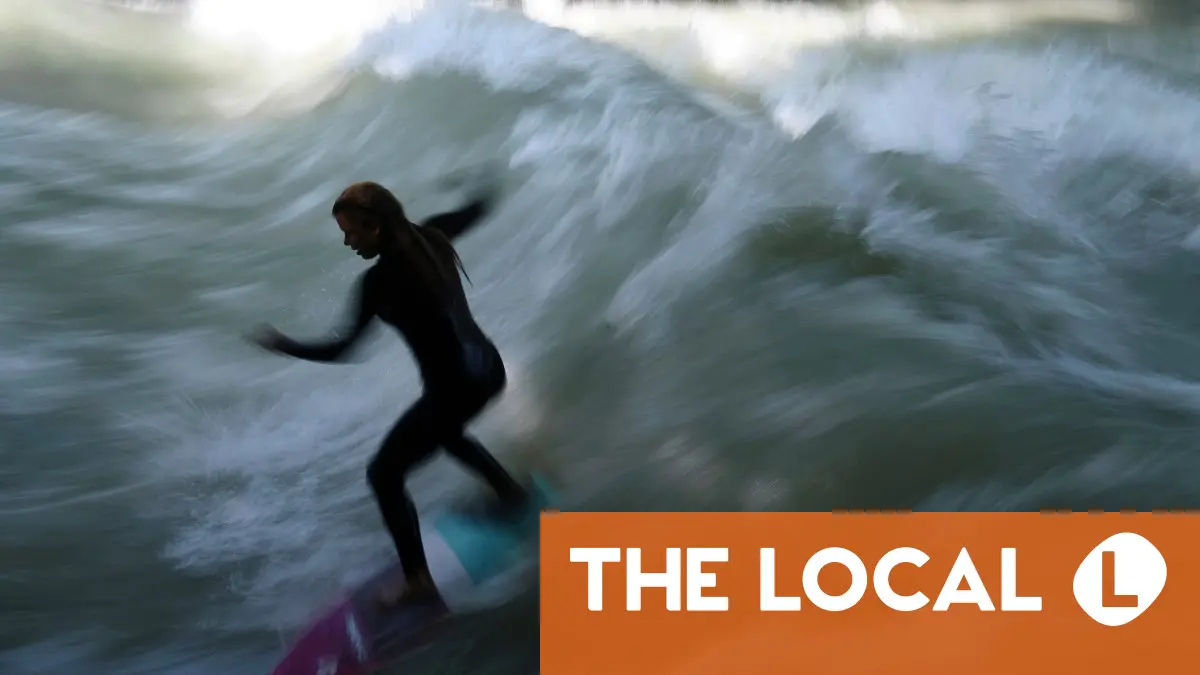The Eisbach (“ice brook”) standing wave in the city’s Englischer Garten park was closed after tragedy struck in April when a 33-year-old woman drowned during a nighttime winter surf.
After a safety review and a petition to keep it open, the site — just a stone’s throw from an art museum and shopping streets — was reopened by authorities in recent weeks.
Putting on a wetsuit and taking a board out of its bag after a day’s work, Moritz, 43, said he’s a regular at the surf spot on an arm of the Isar river.
“It’s amazing. A wave right in the city centre is something very special,” he said. “I missed it during the closure.”
Nearby, surfers performed tricks with virtuosity on the powerful wave, formed by the presence of rocks on the riverbed near a bridge.
“It’s completely different from the ocean,” said Moritz.
“Even if you know how to surf very well in the sea, you don’t necessarily know how to do it here where the water comes from the front and not from behind.”
Another surfer, Irina, 34, said she tries to come three times a week, “before work, because it gives you energy”.
She finds “the power of the wave is good” and said she feels safe at this unique spot, even if “there are rocks at the bottom and you have to be a little careful when you fall”.
Advertisement
‘Surfer’s paradise’
A German surfer lost her life during a night session in April after being trapped underwater for nearly 30 minutes, her leash caught on an unidentified object.
Friends and emergency services rushed to help her, but she died a week after her accident.
An investigation found no safety breaches on the part of the city or state, which had always warned surfers to attempt the challenge “at their own risk”.
New guidelines have, however, been issued: night surfing is banned between 10:00 pm and 5:30 am, and the minimum age for braving the wave is 14.
Surfers must also use a system that allows their leash to be detached in case of emergency.
These rules are “largely reasonable”, said Franz Fasel, head of the local surfers’ association IGSM, who said between 3,000 and 5,000 local surfers use the Eisbach site.
“Surfing is simply part of the lifestyle in Munich,” he said. “Not just for the surfers themselves, but also for the city’s image.”
It was not always this way. In the past, the Eisbach wave was entirely natural and surfable only occasionally, for example, when gravel accumulated in the riverbed.
Surfers took matters into their own hands in the 1980s, installing a river crossing and adding objects to improve the wave, not all well received by the authorities.
The site is now promoted by the tourist office as one of Munich’s top attractions.
Bavaria’s state premier Markus Soeder proudly declared during a recent visit that “Munich is a surfer’s paradise” and Bavaria “a bit like the California of Germany”.

































